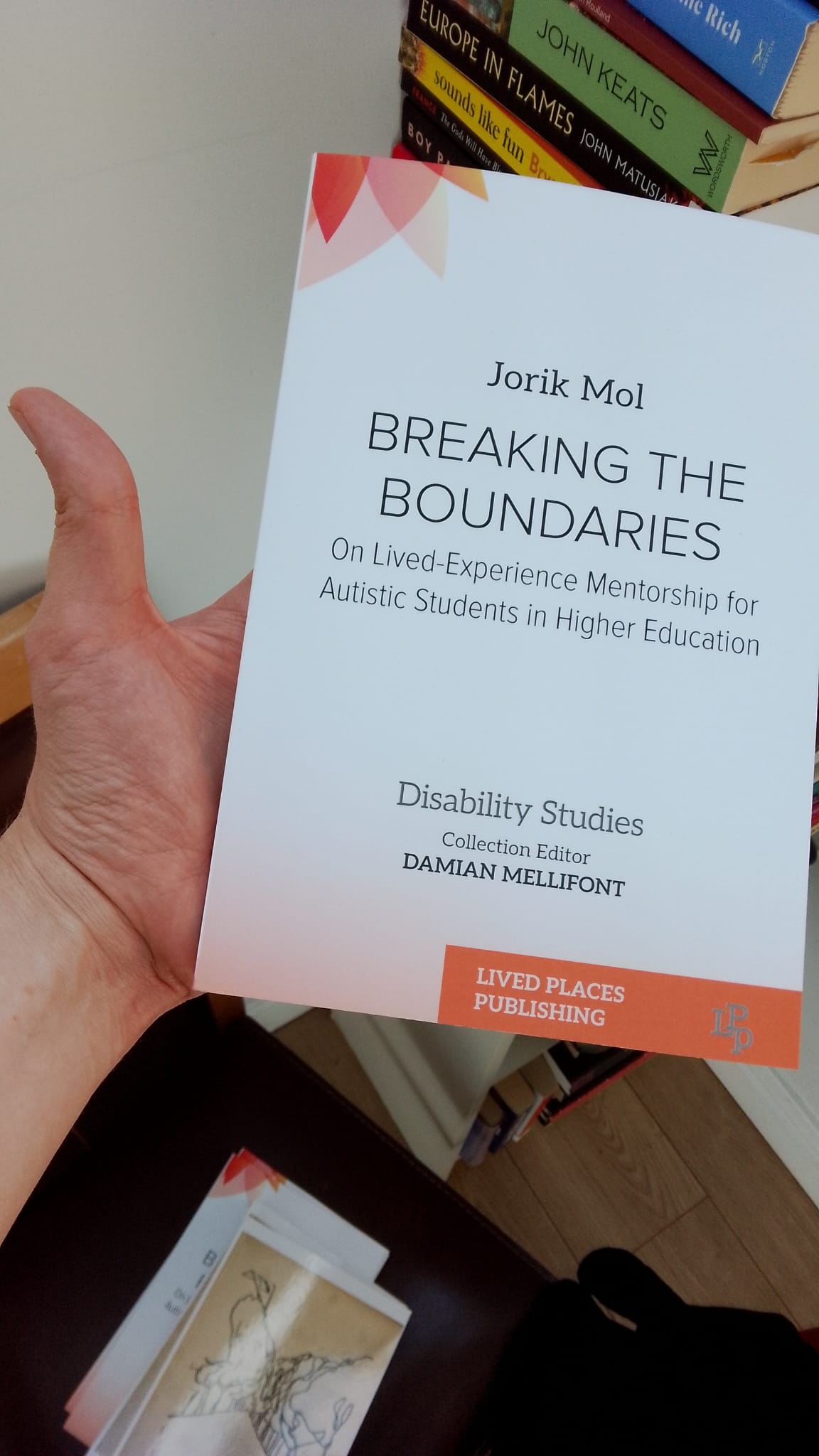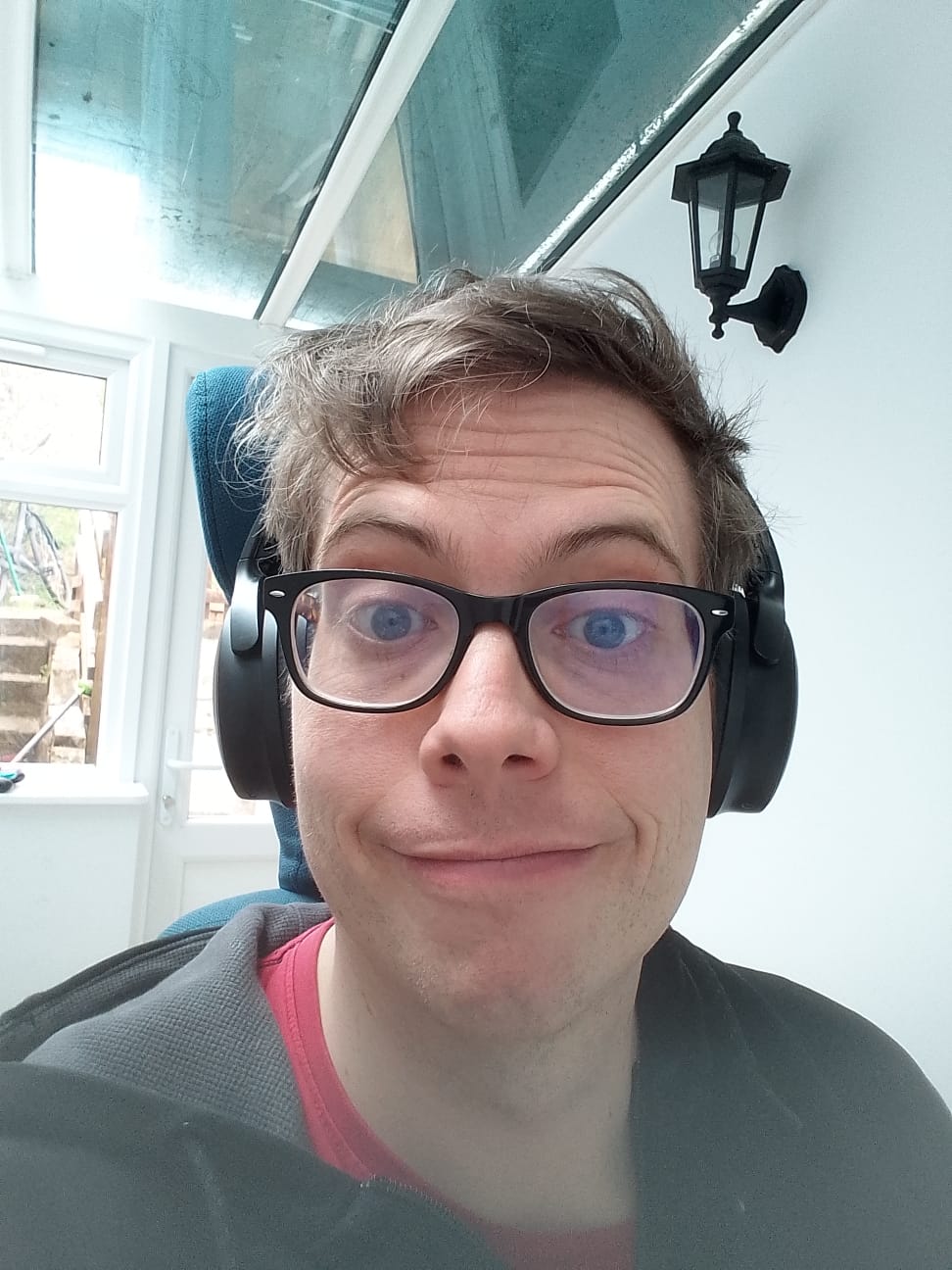CW: descriptions of operations, medical language and trauma; medical abuse, institutional ableism, descriptions of systemic failure and disabled people being the victims of this
Hi everyone!
Apologies first of all about last week’s blog’s date being incorrect. When I found out about it today, I couldn’t change it. That was a bit annoying, but I hope you’ll all be ok with it.
I also completely forgot to mention that this blog is 13 months old now! The 1 year anniversary completely passed me by. Blue the orca is still here, too, he says “mhee mhee!” That means he loves you.
Haircut
I had myself a haircut on Tuesday! I’ve never had much trouble with the sensory element; I just left it far too late his time. I really struggle sensorily with having hair that’s too long. It tends to give me a headache. But today, it was fine. Hence the smug look on my face.
Medical things
I want to talk about a couple of things today, all having to do with medical stuff, so, if you’re not ready for that, that’s all ok. Content warnings apply from here. If you are ready and you’re not currently eating, here we go!
Last week I talked about my partner getting his first Covid vaccine early, which was most likely due to the routine procedure he was supposed to receive. That ended up happening, with practically no notice. The NHS told him that he needed to get himself to Oxford, so he could get his Covid test the next morning, then isolate until Saturday morning. His parents were brilliant, he could stay with them for however long things would take.
His work was not happy. He was forced to take time off, rather than get sick pay. His bosses were disappointed in him, letting him know that he’d let the side down by not letting them know about the operation sooner. When he tried to respond that he let them know the minute after he heard, they simply did not believe him. He had had a pre-medical test about a month previous, but without them telling him about when he could expect the operation to happen. As far as I know, his work hasn’t been unpleasant to him about this since; he was even able to go to work after three days off (even though the doctor signed off work for a full week). This situation can’t be the only time that someone has been caught out by the NHS in this way. Has any of this happened to anyone you know? Tell me down in the comments-field.
The reason I bring up his operation is that, well, he’d never had one before. He’d never had anaesthetics or had any surgery of any kind. He’s always had exemplary physical health, rarely visiting a doctor unless for his yearly check-up. I was pretty nervous about how he’d react.
I’ve spoken before about how my reactions to medication and last week’s blog was all about how clinical trials do not include neurodivergent bodies at all, leaving us vulnerable to unexpected side effects. The video of Oliver McGowan only highlighted that.
I am very vulnerable to anaesthetics, getting unexpected hyper- and hypo-reactions to anaesthetics. When I was three, I had my tonsils removed. This was done under general anaesthetic. I woke up in the middle of surgery. The doctors had no idea why. When I was sixteen, I had the same surgery my partner had last month. I had local anaesthetic, as due to my previous experience, I wasn’t comfortable with being put into general anaesthetic. This did not work. After the local had been given (very painful), I still felt everything just as strongly as I would have without. The fact I was in meltdown didn’t help. When I woke up I was in a violent meltdown. I was brought back into the children’s ward. I cannot remember a single thing, but my mum told me I was swearing my head off, especially at the lovely older nurse who was helping me. She looked at my mum and told her she’d seen this all before and that I just needed to slowly recuperate. Good, because another nurse with less experience might have called a clinician, who might have used anti-psychotics at this point. It was due to a professional with decades of experience that my hypo-reaction didn’t put me at greater risk.
The opposite is also true. Back in 2008, I was given codeine to help with a persistent cough. My sleeping, which was already bad, got even worse and I went slightly mad as a result (I will write about sleep in a subsequent blog). I was given lidocaine in my gums during minor dental surgery (a filling) and I lost consciousness after the procedure. This was especially odd, since I had all four of my wisdom teeth removed in 2009, with far stronger local anaesthetic.
In February 2020, I had to get a stomach endoscopy to look at why I sometimes vomited so much I couldn’t hold down water. My friend Mike was there too, since the procedure took place close to where he lived and, since he is a nurse, he works odd hours. He offered to chaperone me. I’m glad he did, because when I was given the pre-sedative (“something to relax your throat before the actual sedative” the friendly nurse at the centre had said), I started feeling very faint. I could no longer stand. Mike checked in and, yes, my blood pressure hadshot right down. The nurses said they had no idea what had happened. Mike kept on checking in with me, telling the staff I was not having a meltdown, a panic attack or a shutdown; he knew what those looked like and this wasn’t any of those. When my blood pressure had recovered after about 45 minutes, the doctor said he would call off the procedure and get me in for another go at the hospital.
That came in March 2020, just before lockdown. My partner and his mum saw me off and he sat in the waiting room throughout the procedure. I wasn’t supposed to receive a full anaesthetic, just a small dose of fentanyl* to sedate me and for the endoscopy to proceed without issue. I would be sedated, but conscious.
Of course, the moment I was given the shot, I lost consciousness. Another hyper-reaction. The doctor and anaesthesiologist simply performed the procedure while keeping a close eye on my blood pressure. I woke up about an hour after the procedure was over. Everything was clear, but I needed to have someone stay with me for at least 48 hours to see if there were any side effects. That night, a full lockdown was announced. My partner, due to circumstances out of his control, decided to stay. That’s also when we officially moved in together.
* This academic paper uses a double-blind trial to test the efficacy of fentanyl for conscious sedation. From the abstract, it is not clear whether neurodivergent neurologies were included or treated as outliers, or whether the paper even mentions divergent reactions to the drug: https://academic.oup.com/jcag/article/2/2/86/5068474
Worse Outcomes
These were examples where things ended up ok. But not everyone is this lucky. I have spoken to two friends who experienced severe mistreatment at the hands of under-trained and often uncaring medical staff. One’s experience occurred in a private treatment unit, which will be discussed in a subsequent blog. The other’s experience was in their local NHS. I have discussed this with them, they have given their explicit consent for me to share this story. However, due to potential backlash from bad-faith actors, I will anonymise this person’s identity.
My friend was in a bad physical state. They were having a continuing cough and suffered from fever (all of this was years pre-covid). They lived alone, with two wonderful dogs. There had been recent events, including a funeral, where they had been reacting in autistic ways and others misunderstood their intentions. This was due to a combination of a fever and the grief of the person having passed away.
My friend had previously struggled to go to the doctor, since their symptoms were often not believed. This is due to autistic people presenting physical health symptoms in a different way than clinicians get trained on (more on that later). This day, though, the fever was so severe that they were, in their own words: ‘delirious’. They contacted the health service emergency number. The ambulance was sent out with the notion – from the emergency phone line operator – that my friend was having a mental health crisis. They weren’t. When the ambulance arrived, the ambulance workers made it clear they were there to section my friend under the mental health act. My friend told them to go away – non-violently – then the police were called in. Instead of receiving healthcare for their fever – this turned out to be pneumonia – they were instead forcibly sectioned under the mental health act by the police. I’d like to reiterate: the police were working under the false impression they were supporting something in a mental health crisis, when they were actually sick with pneumonia. My friend was never violent to any service provider.
Once in the mental health ward, it took them a full day to realise that my friend needed medical care. At the hospital, the doctor did prescribe antibiotics for the pneumonia, but the mental health ward did not give them to my friend, unless they took antipsychotics as well. Having learned from what happened to Oliver McGowan, they did not want to take the antipsychotics. The staff, however, remained insistent. This resulted in this person refusing to leave their room, fearing they would be forced to take the drugs. All the while, their two dogs were not being cared for, their calls for help ignored.
Only when they were allowed to take the antibiotics without the antipsychotics did their symptoms improve, including what we’ll call for the moment “autistic behaviour” such as meltdowns or stimming. The staff, however, were never supportive, with the result that the course of antibiotics was never finished. Nurses escalated conflict and applied physical force unnecessarily throughout their stay. My friend remained consistently able to self-advocate and express their concerns verbally, but they were simply not listened to. The outcomes, for my friend, are very severe. They are now unable to access NHS healthcare without extreme distress. That is a huge obstacle to further support.
Unfortunately, the White Paper on changing the mental health act in the UK has not yet been implemented. That means that autism is still officially a reason to section someone. We are currently in the consultation period, in which the government seeks contributions from groups and individuals on how to best implement changes to this legislation. If someone autistic is sectioned under the mental health act and a family member or close friend agrees with that sectioning, even if it is groundless, then the person does not yet have much power to challenge it.
In this case, the clinicians and other service providers made mistake after mistake, consistently seeing physical distress as mental distress. Now, my friend agrees that mental illness, when it occurs in autistic people, does require treatment in a supportive environment. But to be forced to take medication for a disorder they do not have is not the way to improve an autistic person’s well-being, not a bit of it.
Another example is from this month’s episode of BBC Sounds’ 1800 Seconds on Autism, which features Jamie Knight as he talks about his recent hospital admission. Listen to it directly on BBC Sounds. Find it here: https://www.bbc.co.uk/sounds/play/p09g1jmz
I can’t recommend this episode enough, as it features Jamie’s unfiltered discussions of how his physical health issues were continually misunderstood. It also features Dr Mary Doherty, who’s an actually autistic doctor and an authority in the field. I met her at Autscape 2019 and she’s wonderful. Find her here: https://www.rcplondon.ac.uk/news/doctor-can-autistic-doctor
One point Dr Doherty made stuck with me:
“Autistic people are up to 3 times more likely to use emergency departments
Autistic people are 3 times more likely to be admitted to hospital following that admittance
And 3 times more likely to potentially die during that assessment.”
In short: we need better healthcare. We need the NHS to follow through on its promises to our community. We need real change.
See you next week!



2 Comments
Colin Wayne Larkworthy · May 17, 2021 at 7:30 am
An interesting read with interesting points. Jorik, thank you for sharing. Quite enlightening.
Nicholas Fell · May 17, 2021 at 2:16 pm
probably the most scary side effect/reaction from medical drugs, was when a dentist gave me 5 shots of lignacaine, before extracting an impacted wisdom tooth. on getting out of the dentists chair, it was like seeing double, the room was spinning, i was delusional and hallucinating/out of body sensation. i was high as a kite, it was like you could fly. coming down off it was the worst ever splitting headache. I’d never experienced that effect before, and didnt quite understand what was going on.